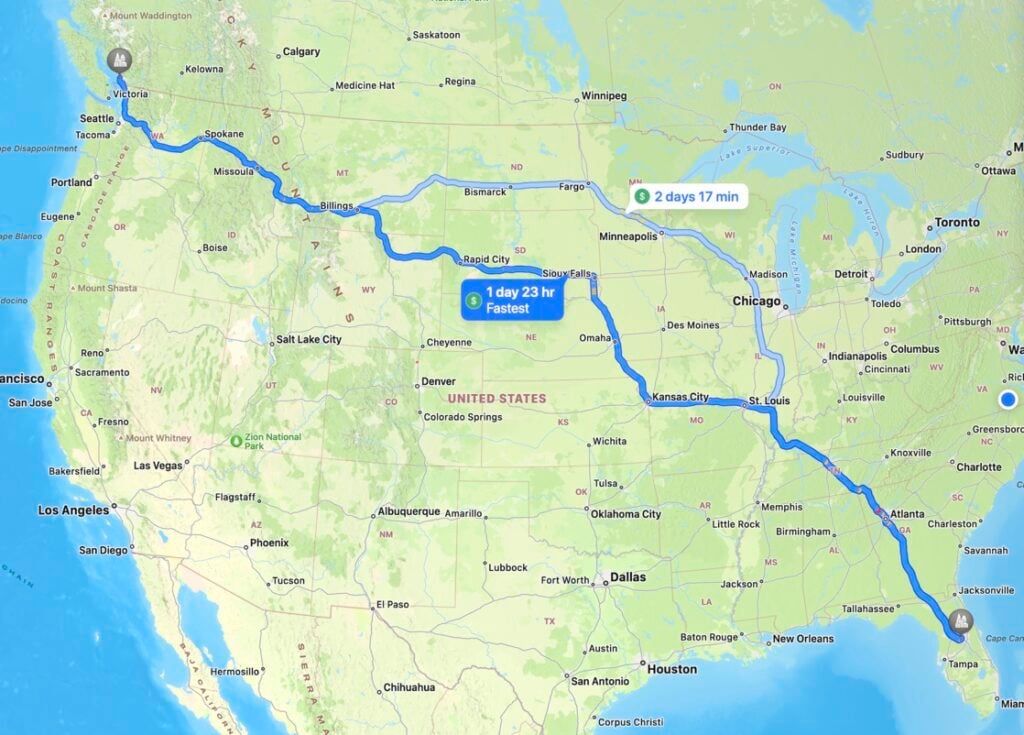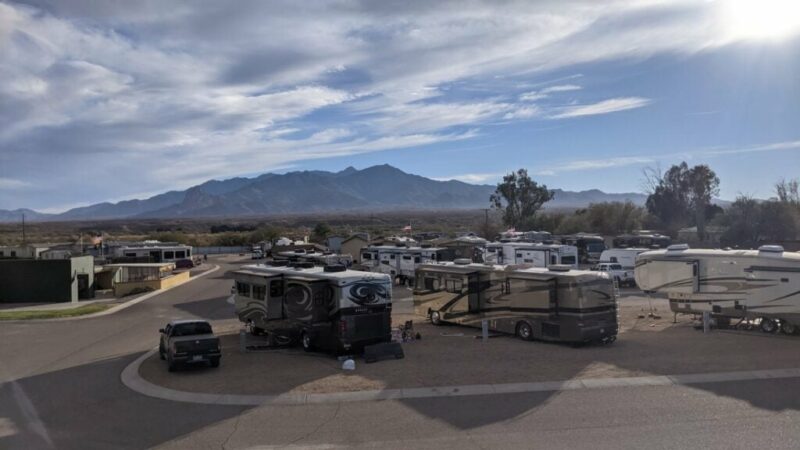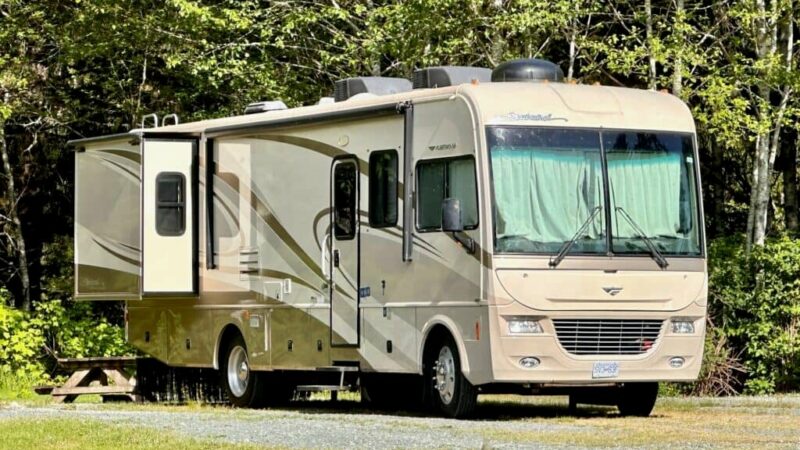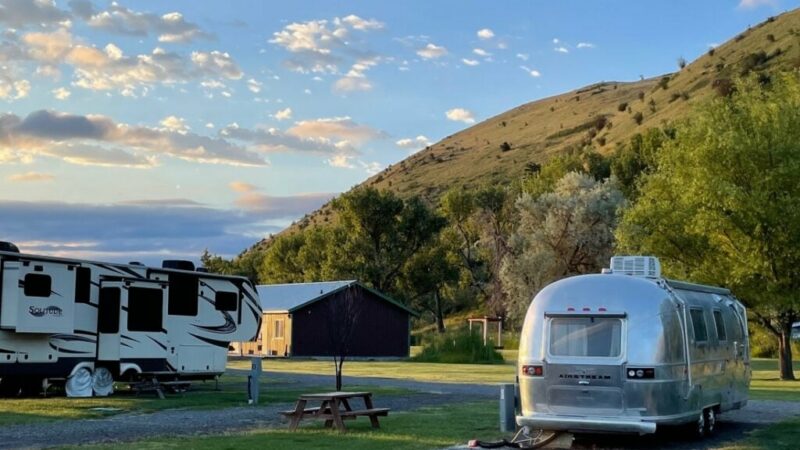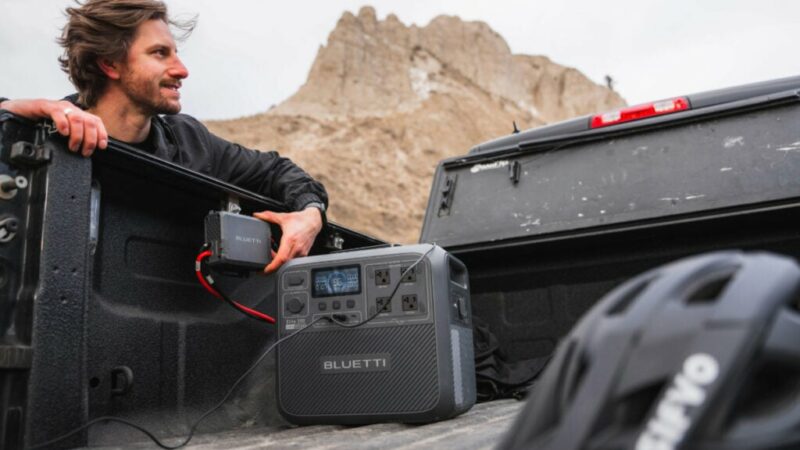Is a Long Distance RV Purchase Worth It to Save Money?
The decision to enter a long distance RV purchase is a big one. I’ve done it, and what I can tell you is that traveling cross-country to purchase an RV involves far more than making a simple financial calculation. In this article, I share the four big questions I asked myself before deciding to buy an RV from across the country. You should ask them too if you’re tempted by saving money on a faraway RV.
The Four Questions to Ask Before Making a Long Distance RV Purchase
Buying an RV across the country can save you a lot of money. But there are many factors at play that could negate any of that money you saved. Before you ever agree on a long distance RV purchase from a dealer, someone on Craigslist, or an eBay seller, remember that buying an RV out of state can be m more complicated than it first appears.
Before you commit, ask yourself the following four questions.
Do You Have the Desire to Travel Cross-Country?
The first mitigating concern is, do you want to drive across the country? If you have never done it, or you’ve never been to the part of the country where you will be picking up the RV, then it could be a lifetime memory-maker that you will cherish forever.
Many people start a full time RV lifestyle with the intent of traveling extensively throughout the country. But many can’t seem to break away from the close to home, familiar places. If that sounds like you, driving across the country to buy a long distance RV might be the very thing you need to break out of a familiar mold. I know it was for us.
Do You Have the Time for a Long Distance RV Purchase?
Another major concern about traveling cross-country to buy an RV is whether you have the time for such a long trip. Remember, it’s about 3,000 miles from one coast to the other. According to GPS, most people will need about 40 hours of drive time in a passenger car. The reality is you probably wouldn’t want to drive that far that fast. You need extra time to rest and hopefully do some sightseeing along the way.
This long distance RV purchase adventure could easily take a month or more, one way. If you’re still working and trying to plan a cross-country trip around your work schedule, it might be a daunting task. Getting back in time to meet the demands of your work schedule could add extra stress to the trip.
Do You Have the Courage to Travel Cross-Country?
Driving cross-country to buy an RV could be a frightening and daunting challenge for some people. Perhaps this is your first RV and driving all the way across the country and back just to retrieve it, is a bridge too far.
- You will need to set up the RV for camping.
- Will your tow vehicle or towing vehicle need to be set up too?
- What about outfitting the RV with accessories needed for a cross country tip?
Gathering these RV necessities are much easier if you can take your new RV to your home, and then take your time to shop from your must have RV accessories list.
Remember once you take possession of the RV it’s still empty.
In most RV purchase situations you won’t have dishes, coffee pot, bedding, towels, sewer hoses, potable water hoses, or other personal effects that make it a comfortable place to stay on your way home.
Of course, you could purchase all those items wherever you buy the RV. But does that make as much sense as having the RV in your driveway and using supplies from your home? Or shipping RV gear to your residence?
Stocking your RV at the place you purchase it could significantly increase your costs. Not stocking it there, means you must travel back across the country in an RV that would be less convenient and enjoyable.
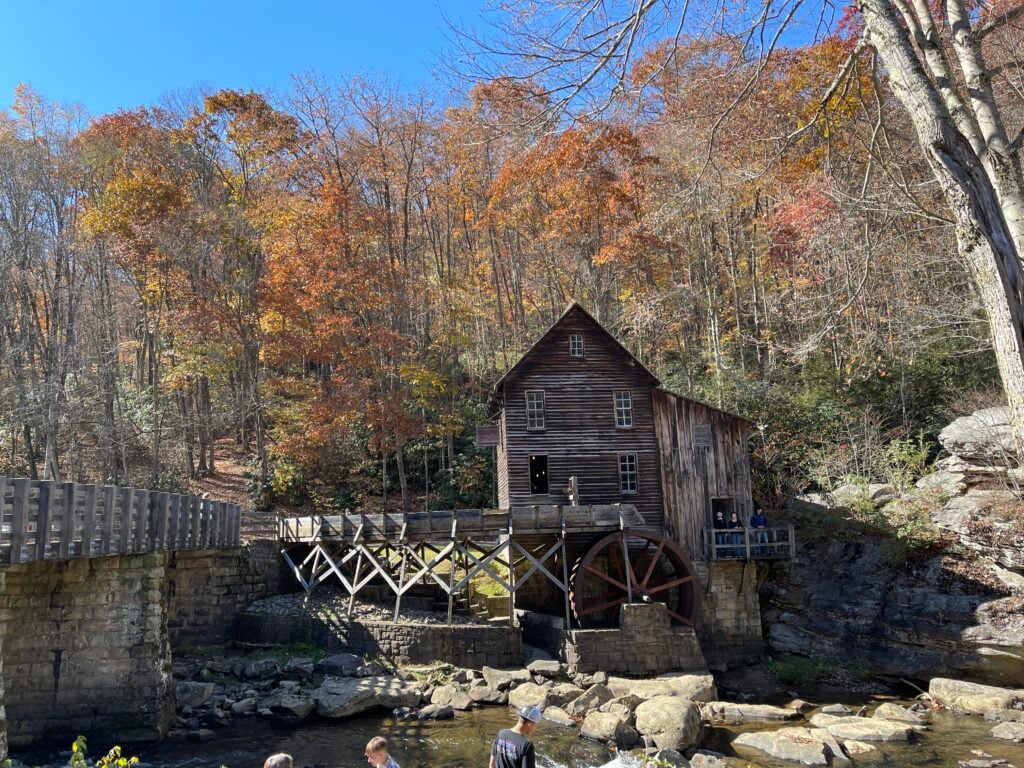
(Image: P. Dent)
Do You Have the Funds to Buy a Long Distance RV (and Pay for the Cross-Country Travel to Get It?)
Buying a new or used RV can be expensive. It’s common for people to spend $100,000 and up on a new or used motorhome, fifth wheels, or luxury travel trailer. The extra costs of an RV inspection, vehicle licensing fees, RV insurance, sales tax, temporary license plate, and an extended RV warranty add to the expenses. If you’re taking out an RV loan or hiring an RV inspector, you need to arrange those details beforehand too.
- In addition to the actual costs of the RV, if it needs to be towed there could be extra costs associated with preparing a truck for travel trailer towing.
- If you need to tow a dinghy, or haul motorcycles, there are extra costs to get the towing gear set up with a tow bar and braking system.
Now calculate all the costs associated with the purchase and outfitting of the RV. Do you then have the extra funds necessary to pay for a cross-country trip and back? That’s 40-plus hours of fuel one way, and potentially two or more weeks of additional camping fees, or hotel reservations if you’re traveling in a car or truck. And if this is going to be an epic memory-making road trip, you’ll probably spend some money on sightseeing along the way.
New to RVing? Buy Locally to Avoid Extra Costs
Sometimes it might make more sense to buy a camper from a local dealer instead of a private seller on RV Trader or Facebook Marketplace in your home state. This is especially true if you are buying first RV long distance. The epic road trip to do it is appealing. But the reality is that schedules, costs, and the process of outfitting your new RV and tow vehicle from your home base may be the most low cost decision.
Once you get your new RV set up you can always budget for and set aside vacation time for a longer, less stressful cross country RV trip.
Our Story: Buying an RV Across the Country Paid Off
In 2017 we started our full-time RV lifetyle in our old 33-foot Class A motorhome that we purchased new in 1999. The rig was still in excellent condition, but it had over 100,000 miles on the engine and 18 years of wear-and-tear on the house systems. We knew it would need to be replaced in the next couple of years.
When we finally decided to start shopping for a replacement RV with low mileage, we already knew precisely what style, brand, size, age, floorplan, bathroom, and comforts of home we wanted in our next motorhome.
Our experience made the search easier by focusing on finding the best deal that precisely suited our needs. We searched all the national data bases and found two RVs that fully matched our requirements. Yes. I said two!
Was this a good reason to take that cross-country RV trip?
We were in Port Hardy on the northern tip of Vancouver Island BC, Canada when we found the two RVs that matched our specifications. One was in San Diego, and the other in Winter Garden, Florida. These two RVs were the same brand, year, and floorplan. But the one that was closest to us (San Diego) was $5,000 more expensive. We tried to negotiate with the RV dealer, but their offer was fixed. The monetary difference between the two RVs was over $6,0000. We needed to decide if buying the less expensive long distance RV was worth it.
We had talked about traveling across the country for over two years. But we couldn’t seem to get away from all our favorite places in the Pacific Northwest. We used the excuse that we had an elderly mother living in assisted living and we didn’t want to be too far from her. But the reality was that we were scared and anxious about RVing in regions of the country that we knew nothing about.
Florida RV versus San Diego RV: Which one was the better deal?
However now we were confronted with the choice of driving 3,500 miles across the country to Florida or driving 1,300 miles to San Diego to enjoy better prices on a new rig. This was just the nudge we needed.
We already had a fully equipped RV, so outfitting the new one was just a matter of transferring gear from one RV to the other. We had a tow vehicle that was all set up for towing, we had tons of experience RVing. And we had all the planning tools we needed for this trip, including RV LIFE Trip Wizard.
After doing the math we determined that the cost of fuel, camping fees, and extras would still be better deals, coming in less than $6,000. Once we bought the long distance RV, we would be on the East Coast where we could continue to travel, explore, and recreate. What we saved on the Florida RV paid for the trip, and pulled us out of our comfort zone. Since then, we have driven cross country two more times. We are now comfortable on the east coast, the west coast, or in any of the beautiful states in-between.
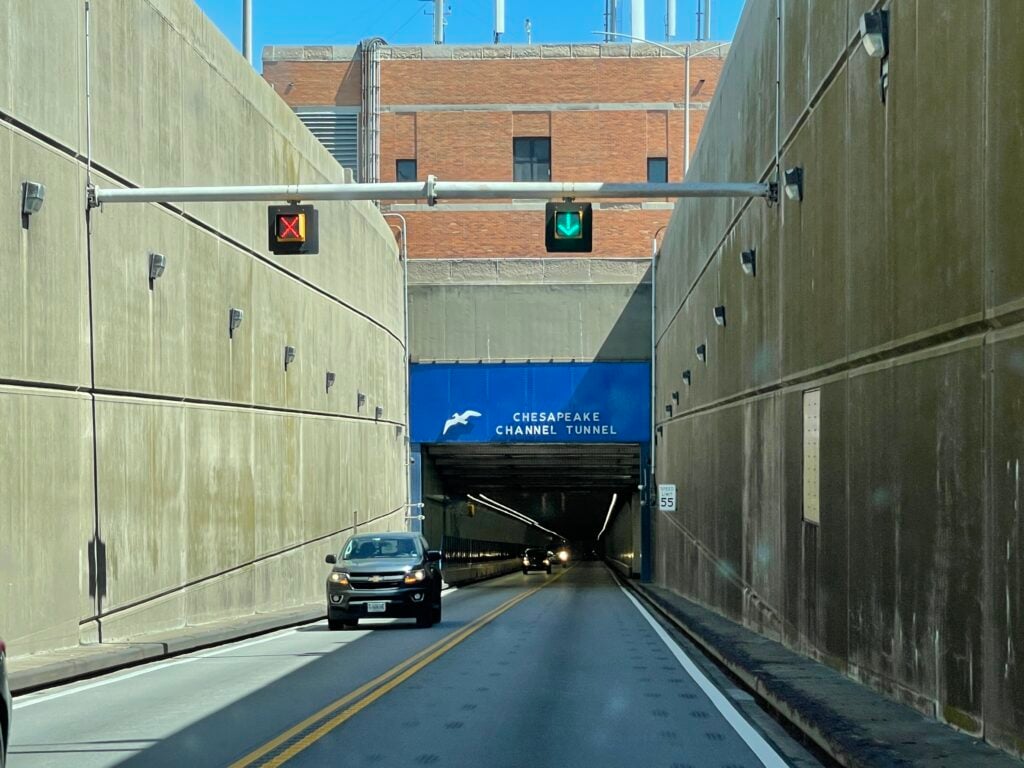
Is Traveling Cross-Country for a Long Distance RV Purchase the Right Decision for Everyone? No.
If you can find a local RV that meets your needs, and you don’t have to compromise your expectations or standards, then it makes more sense to buy an RV locally. And if this will be your first trailer, truck camper, or motorhome, then it makes even more sense to buy locally.
But if you’re already a full time adventurer and the idea of a cross-country RV trip feels daunting, then maybe buying a long distance RV from a dealer or private party is just the nudge you need to break out of your comfort zone.
The post Is a Long Distance RV Purchase Worth It to Save Money? appeared first on RV LIFE.

